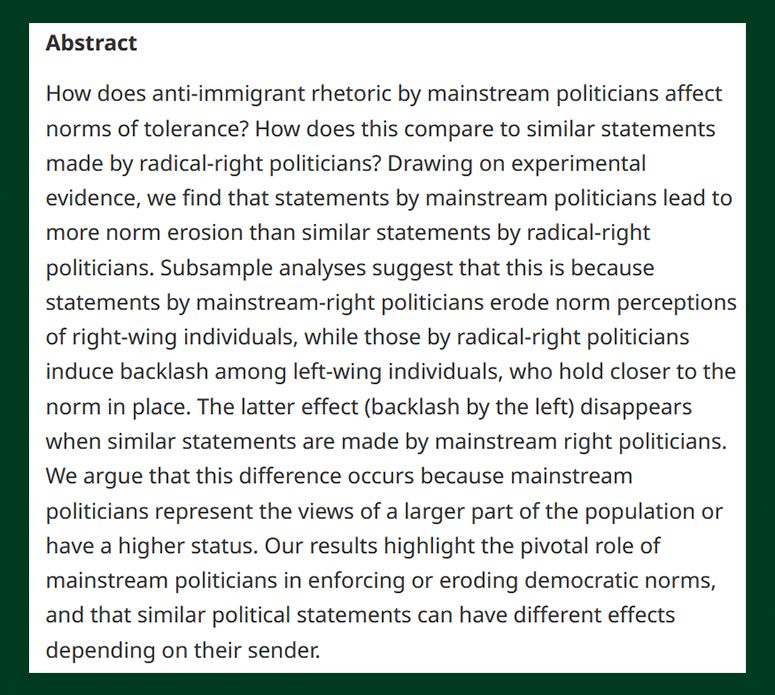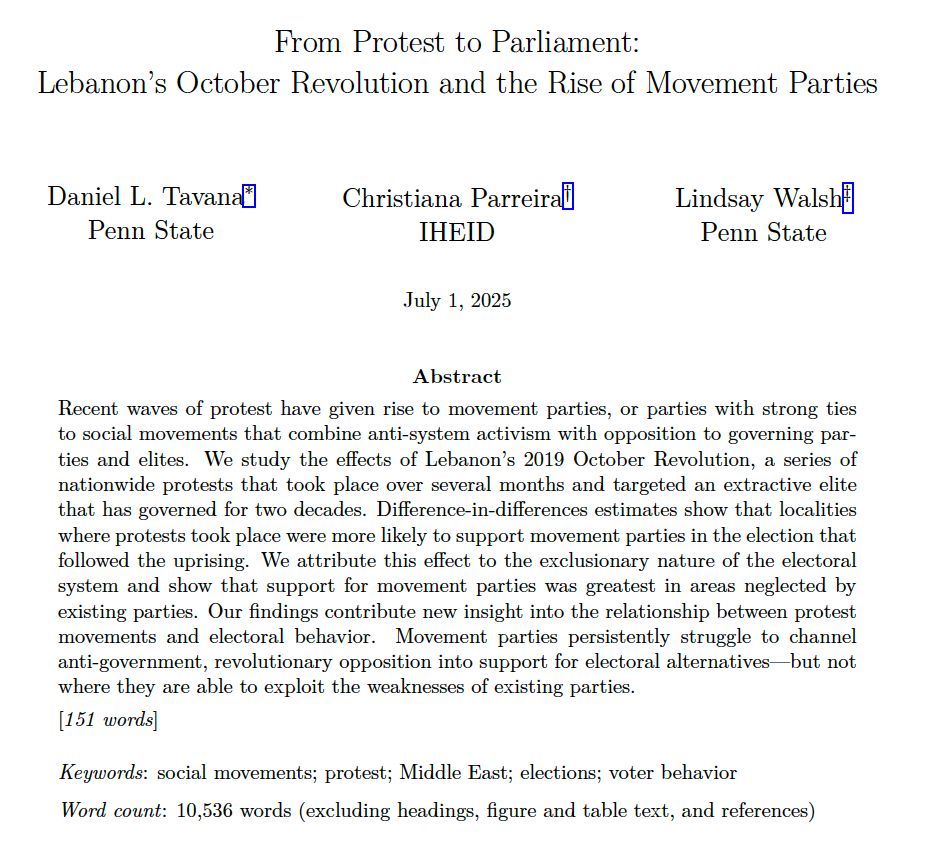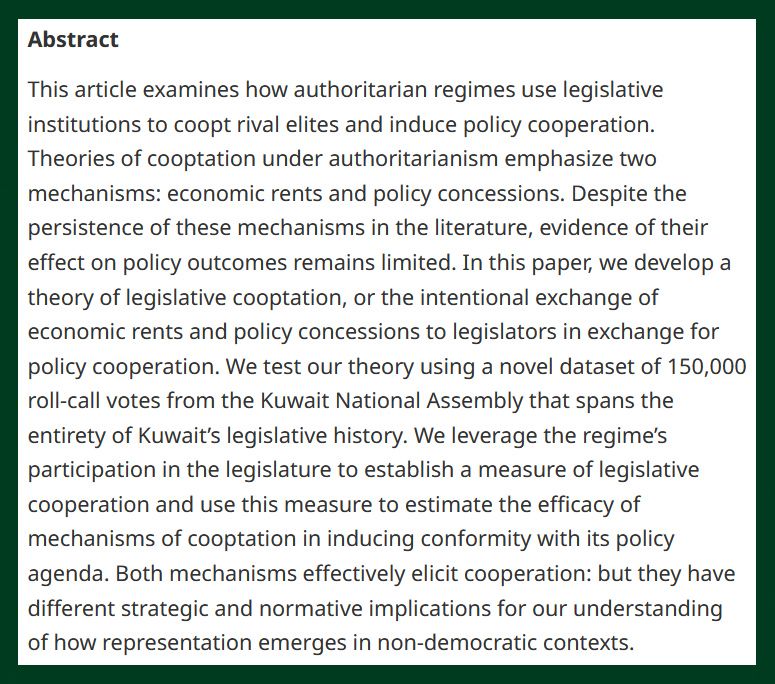Daniel Tavana
@danieltavana.bsky.social
1.3K followers
630 following
60 posts
Assistant Professor of Political Science, Penn State. I work on elections, identity, and political behavior in the Middle East and North Africa.
danieltavana.com
Posts
Media
Videos
Starter Packs
Pinned
Reposted by Daniel Tavana
Daniel Tavana
@danieltavana.bsky.social
· Sep 10
Reposted by Daniel Tavana
Daniel Ziblatt
@dziblatt.bsky.social
· Aug 12
NEW -
How Mainstream Politicians Erode Norms - cup.org/4lfeHvD
"we find that statements by mainstream politicians lead to more norm erosion than similar statements by radical-right politicians"
- @valentimvicente.bsky.social, Elias Dinas & @dziblatt.bsky.social
#OpenAccess
How Mainstream Politicians Erode Norms - cup.org/4lfeHvD
"we find that statements by mainstream politicians lead to more norm erosion than similar statements by radical-right politicians"
- @valentimvicente.bsky.social, Elias Dinas & @dziblatt.bsky.social
#OpenAccess

Reposted by Daniel Tavana
Elizabeth Nugent
@ernugent.bsky.social
· Aug 25
Reposted by Daniel Tavana
Reposted by Daniel Tavana
Reposted by Daniel Tavana
Reposted by Daniel Tavana
Daniel Tavana
@danieltavana.bsky.social
· Jul 22
Daniel Tavana
@danieltavana.bsky.social
· Jul 22
Daniel Tavana
@danieltavana.bsky.social
· Jul 22
Daniel Tavana
@danieltavana.bsky.social
· Jul 22
Daniel Tavana
@danieltavana.bsky.social
· Jul 22
Daniel Tavana
@danieltavana.bsky.social
· Jul 22
Reposted by Daniel Tavana
Reposted by Daniel Tavana
Babak Rezaee
@babakr.bsky.social
· Jun 13

Who Rallies Round the Flag? The Impact of the US Sanctions on Iranians’ Attitude toward the Government
Abstract. While politicians often argue that economic sanctions can induce policy changes in targeted states by undermining elite and public support for th
academic.oup.com
Reposted by Daniel Tavana
Reposted by Daniel Tavana














